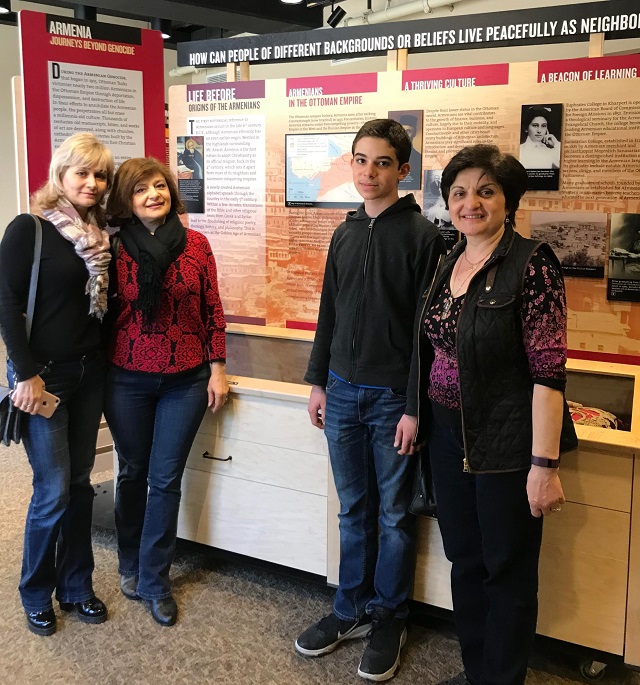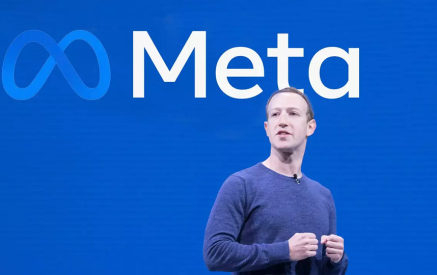The Armenian Weekly. For many educators, scholars and activists, the month of April signifies an intense period of genocide-related programming and outreach. For us at Chhange—the Center for Holocaust, Human Rights & Genocide Education, where I am the Executive Director—it signals an uptick in traffic to our exhibit, Journeys Beyond Genocide, an array of commemorative programs and preparations for the annual art program and colloquium (both in May). Or at least, so I am told; I am relatively new to my position and this would have been my first Genocide Awareness Month “experience” at Chhange. Since its establishment in 1979, Chhange has educated hundreds of thousands of students, educators and community members about genocide and human rights, including the Armenian Genocide. But the pandemic reached New Jersey early on, and by the end of March, we had decided to transition our programs to virtual platforms. This was so well-received that we created additional programs to engage with our community and come together, even as we self-isolate.
Transitioning to online platforms was a heavy lift for us. We are a 501(c)3 nonprofit with just three full-time staff. Fortunately, we were able to tap into our dedicated volunteers, board members and contract staff who offered tremendous support and encouragement. Brookdale Community College, where we are housed, also provided us with technical (and moral!) support. In addition, various scholarly and educational networks, like the International Association of Genocide Scholars and the Association of Holocaust organizations, quickly became a space for collaboration, information sharing and moral support that benefited us greatly.
We mapped out seven virtual programs for the month: four Lunch & Learns on women during the Genocide against the Tutsi; Holocaust Survivor Helena Flaum; Armenian Genocide Survivor Dr. Khachig Boghossian; the Queer ABCs; and commemorative programs for Kwibuka26, Yom HaShoah and Armenian Genocide Remembrance Day. Also, to support our educators (New Jersey is one of 11 states in the US to mandate Holocaust and genocide education), we developed the “Survivor ABCs,” 26 five to ten-minute mini-lessons that featured genocide survivor stories on Instagram, one for each letter of the alphabet.
Like many educators and institutions confronted with the sudden pivot to online teaching and learning, we faced a steep learning curve. Our first program hearkened back to our roots—Chhange celebrated its 40th anniversary just last year. Founded by two Brookdale professors, Dr. Sy Siegler and Jack Needle, it started out with a $250 grant offered by the college and went from a standing room only Lunch & Learn series to a Center for Holocaust Studies.
Read also
Now virtual, our first Lunch & Learn took place via Zoom and received interest across four continents. This was encouraging news—we were clearly meeting a need—but our Customer Relationship Management software was not built for international registrants. So we opened up the process, not realizing that this first program coincided to the day with a flood of articles featuring the perils of Zoom.
Our first program ended in disaster. We were targeted by anti-semites and racists in a coordinated hacking attack. It was a jarring experience, but it also affirmed the necessity of this programming. The rise in hate crimes around the United States in response to the pandemic is alarming, but not surprising. Our Center was built for these times; the need for innovative education dedicated to the elimination of antisemitism, racism, and all forms of prejudice is all the more pressing today.

Journeys Beyond Genocide: The Human Experience at the Center for Holocaust, Human Rights & Genocide Education (Chhange) at Brookdale Community College
But it was a difficult balance – creating a welcoming environment with as few barriers to access as possible and ensuring necessary security measures to protect our community. We set up safeguards to avoid further attacks. And we continued our program for the Lunch & Learn series. In a positive turn of events, the series was so well-received, we put every program up on YouTube as a professional development opportunity for educators. In addition, we now plan to implement it as part of our “normal” (whatever that shall mean) programming moving forward. The same is true for our “Survivor ABCs program” – in the end, it reached over 5,500 people, including many educators linked to Chhange, and we plan to continue similar mini-programs in the future.
Forty-one years later, Chhange has expanded both in scope and in impact, but our mission statement and work remain grounded in Holocaust, human rights, and genocide education. We continue to innovate in an effort to continue to meet the evolving needs of the community. With the transition to virtual commemorative programs, we drilled down to our priorities – for example, we no longer had the morning to put on our usual Yom HaShoah event. Attention spans on the web are much shorter (in truth, they are shorter in person as well, but that’s for another discussion). In the end, our priority was testimony.
Our Kwibuka26 program featured child survivor Yannick Tona who shared an abbreviated version of his testimony and participated in a moderated Q&A. Our Yom HaShoah program similarly featured testimonies from three Holocaust Survivors, each who, in an interesting turn of events, chose to address the pandemic, and a candle lighting ceremony that featured photos of survivors lighting candles at home. And our Armenian Genocide Commemoration included a live-streaming of the film “The Stateless Diplomat,” featuring the story of heroine Diana Apcar (and told primarily in her own words) and a Q&A with her great-granddaughter and the film’s creator, Mimi Malayan.
Each program was hosted via Facebook Live, selected because it offered the fewest barriers to access for our community members without compromising security. The programs were successful and offered some unexpected benefits. No longer limited by geographic constraints, many housebound seniors and Holocaust survivors who had previously been active with Chhange were able to participate in our programming.
In addition, our footprint of impact expanded. Thousands of people have participated in each commemorative program and from around the world, spanning five continents to date. During the live-stream of “The Stateless Diplomat,” over 1,500 people watched the film across four continents and dozens commented and reacted in real time as they watched the film.
Many praised the film:
“What a wonderful true story of a blessed woman.”
“Thank you for bringing this history to life.”
Still others expressed appreciation for the viewing opportunity:
“I will honestly admit, I was clueless about the road traveled by Armenian warrior Diana. Thank you for enriching my knowledge.”
“Getze Chhange – Long life (God Bless) forever Chhange! Thank you.”
For some, the viewing proved cathartic and an opportunity to express outrage and hurt:
“A tragedy for humanity.”
“A disgrace that the world did nothing.”
In addition, the decision of the commemoration speakers featured in each program to address the pandemic also provides time capsule pieces about how our society is addressing this pandemic. The messages of resilience and hope resonate that much more in our current times.
Our virtual programming continues. Stay tuned because next month, on May 13, 2020, Chhange will host its first ever virtual colloquium “American Heroes & Rescuers.” Now in its 38th year, the Chhange colloquium draws thousands of students and community members from across New Jersey for a day of educational programming. This year, Chhange will honor the 75th anniversary of the liberation of Holocaust survivors. The plenary session is open to the public and will feature the sons of two American heroes who helped to rescue and liberate during the Holocaust.
A few months ago, I would have been the first to argue that the virtual sphere offers an imperfect medium for such intimate experiences like a genocide commemoration. But the pandemic has been a defining moment for many of us. For us at Chhange, this crisis has been defined by our efforts to innovate and harness virtual platforms to meet the needs of our community, near and far, and facilitate ways for us to come together even as we are so far apart. I am tremendously proud of my small-but-mighty team and the community that has helped lift us up.
In addition to creative educational programming, Chhange houses a 6,000-volume library dedicated to Holocaust and Genocide Studies and New Jersey’s only Holocaust and genocide archives. The items included were donated by survivors and their surviving generations and include photographs, audiovisual testimony, and unique pieces integrated throughout the Journeys Beyond Genocide exhibit, including Armenian Genocide survivor Alem Oskian’s Turkish bath shoes, a yellow six-pointed star bearing the German word “Jude,” a peace quilt made by Rwandan Genocide survivors, and a signed first edition of Soghomon Tehlirian’s memoir, Tarahadouytse (He Who Delivered Justice). Chhange developed a permanent exhibit that is now open to the public, Journeys Beyond Genocide: The Human Experience. Journeys Beyond Genocide engages visitors with the human story behind the Armenian Genocide, the Holocaust, and the 1994 Genocide against the Tutsi in Rwanda. Utilizing archival items and life histories of local survivors, the exhibit features personal history to connect genocides of the past to today’s world. In addition, the museum-grade exhibit includes “Stand Up for Human Rights,” an interactive section which challenges visitors to explore, process, and take action.
Sara E. Brown
Main caption: Ala Monokian and family at the Armenian Genocide section of the Journeys Beyond Genocide exhibit




























































